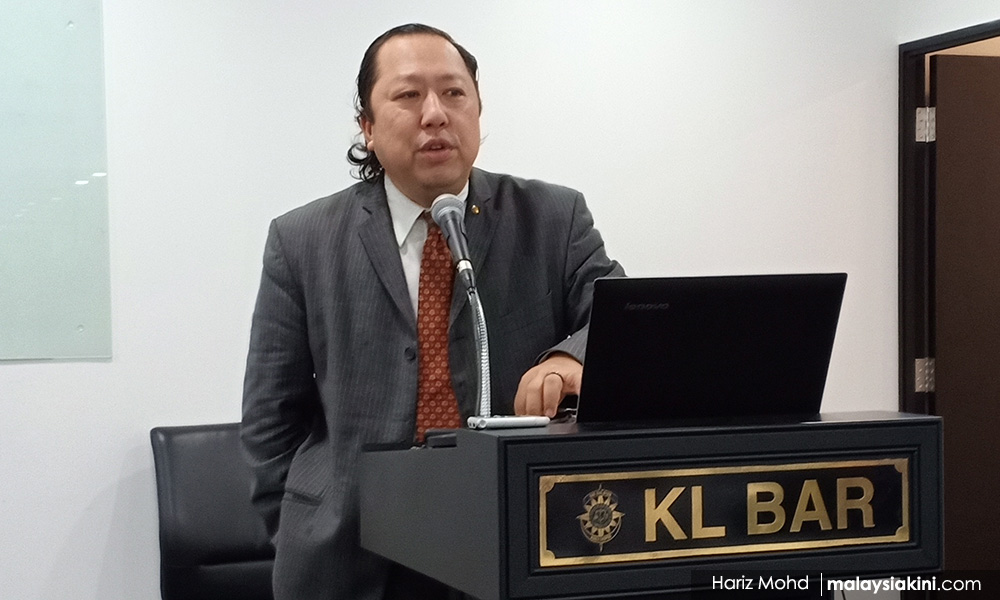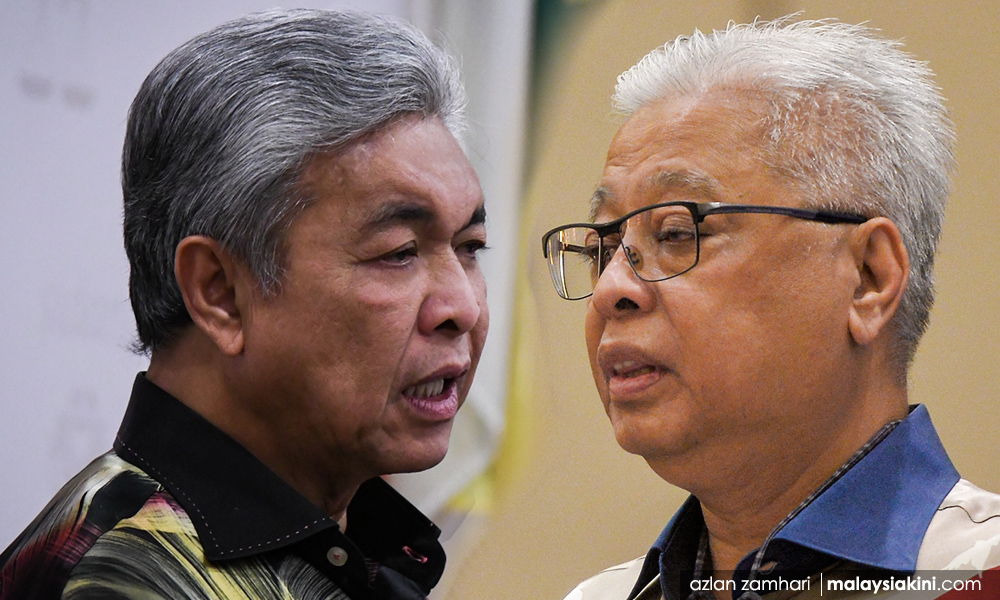Speculation that the 15th general election (GE15) will be held amid the monsoon season has raised questions on whether the Yang di-Pertuan Agong can withhold his consent to dissolve Parliament.
Article 40(2)(b) of the Federal Constitution states that the Agong may act at his discretion to withhold consent to a request to dissolve the legislature.
However, as there are no specific conditions attached to this clause, there are differing views in the legal fraternity on when the king can exercise this power.
For three out of four lawyers Malaysiakini contacted, the answer was rather straightforward in that His Majesty has total discretion on rejecting a request to dissolve Parliament.
Bar Council constitutional law committee co-chairperson Andrew Khoo said while in general, the Agong must act on the advice of the cabinet as per Article 40(1), the monarch is freed from such restraints on matters covered by Article 40(2).
“The Federal Constitution is silent as to what matters are to be considered by the Agong in coming to a decision on this issue (withholding consent to dissolve Parliament).

“But certainly the ease or difficulty of the rakyat to exercise their constitutional duties in a general election may well be one of the matters to be considered,” he added.
Former Malaysian Bar president Yeo Yang Poh and Sungai Buloh MP R Sivarasa echoed similar views that the king’s discretion under Article 40(2) is absolute.
Constitution compels
However, lawyer New Sin Yew presented a dissenting opinion, based on specific wordings in the Constitution.
Examining Article 40(2)(b), New said the king’s discretion is on the condition that it is a “request” to dissolve Parliament.
He argued that this would only apply when it involves Article 43(4) - which specifically states that a prime minister who has lost the Dewan Rakyat’s confidence, may “request” for Parliament to be dissolved.
In other circumstances, New said, a call to dissolve Parliament early would be considered the cabinet’s “advice” to the king - which His Majesty is constitutionally compelled to accept.

“If the cabinet advises the Agong to dissolve Parliament, it is not a request made by the prime minister under Article 43(4).
“Therefore, the Agong cannot withhold consent to dissolve Parliament under Article 40(2)(b) if the cabinet advises him to, even if it is during floods.
“His Majesty must accept and act in accordance with the advice under Article 40(1) and Article 40(1A),” the lawyer added.
New said incidents in Perak in 2007 and Sabah in 2018 where requests to dissolve the state legislatures were rejected, would fall under the loss of confidence scenario.
Pressure to hold election
Prime Minister Ismail Sabri Yaakob is under pressure from BN chief Ahmad Zahid Hamidi to dissolve Parliament this year.
But with just three months left and the monsoon season fast approaching, it has raised major concerns that the polls would coincide with floods.
Zahid said that BN was prepared to wade through floodwaters during the GE15 campaign.
He has also brushed off concerns about floods during the election as a “myth” perpetuated by the opposition to avoid defeat.

However, while the Umno president and those aligned to him are piling pressure on Ismail Sabri to dissolve Parliament - New argued that the prime minister cannot act on his own.
“I must emphasise that (under the Constitution) it is the cabinet that advises the Agong.
“The prime minister may act under the general authority of the cabinet but if the cabinet doesn’t approve then the prime minister cannot unilaterally advise the Agong,” he said.
Several ministers have spoken out against holding an election this year, including those from Umno.
Risk of fatalities
Meanwhile, if an election does take place during the monsoon season and floods occur, the consensus is that the Agong can declare an emergency if the interim government advises him to do so.
Sivarasa said this would allow for the election to be suspended - albeit for a limited time.
“Once Parliament is dissolved, if the situation becomes very bad with flooding, it is possible for the interim prime minister to advise the king to declare an emergency for a limited period after which the election can take place,” he said.
The Election Commission has also said that it has the authority to postpone election on voting day at specific polling stations if they are inundated by floods.
The last time an election was held during the monsoon season was in 1999.
However, Dr Mahathir Mohamad - who called for that year’s election - said the situation now is dramatically different due to the impact of global warming.
The former premier said holding an election during the monsoon season could now result in fatalities. - Mkini




No comments:
Post a Comment
Note: Only a member of this blog may post a comment.